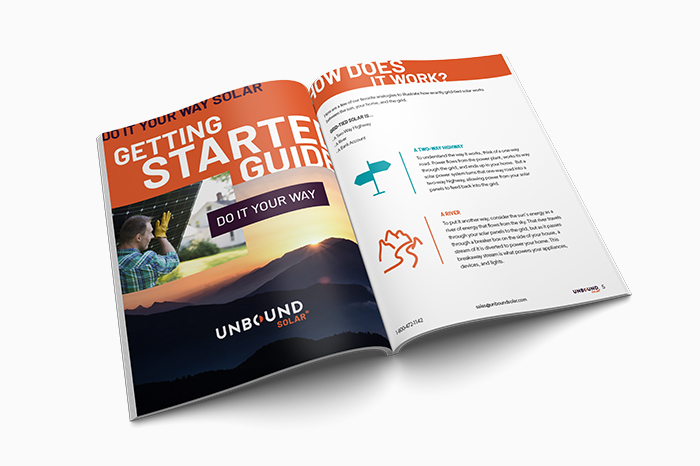Is Leasing Solar Panels Worth It?
Do-It-Your-Way Solar Guide
TABLE OF CONTENTS
- Pros, Cons, and Costs
- Pros and Cons of Solar
- Are Solar Panels Worth It?
- Solar Panel Cost Calculator
- Solar Panels ROI
- Federal Solar Tax Credit
- State Solar Incentives
- Solar Lease Guide
- Should You Lease Solar?
- Solar Financing
- Planning
- Do Solar Panels Increase Home Value?
- Community Solar
- Sun Hours Map
- Solar Electrical Requirements
- Solar Permitting
- Net Metering Guide
- DIY or Contractor Install
- System Design
- Grid-Tied vs. Off-Grid
- How to Size Your Solar System
- Solar Panel Efficiency
- 60 Cell vs. 72 Cell Solar Panels
- Monocrystalline vs. Polycrystalline Solar Panels
- Best Solar Panels
- Microinverters vs. String Inverters
- Best Grid-Tied Inverters
- Ground Mount vs. Roof Mount Racking
- Best Solar Panel Mounts
- Lead-Acid vs. Lithium Batteries
- Best Solar Batteries
- Battery Backup for Grid-Tied
- Installation
- Step-by-Step DIY Solar Installation
- Part 1: Planning & Safety
- Part 2: Wiring & Electrical
- Part 3: Mounting Your Panels
- Part 4: Battery Installation
- Off-Grid Solar Commissioning
- Monitoring & Maintenance
- Best Solar Panel Monitoring
- Solar Panel Maintenance Cleaning
Why Loans Make More Sense Than Leases or PPAs
Leasing solar panels for your home is not a good idea from a financial perspective. We simply do not recommend it. In most cases, you’ll save much more money in the long run by exploring other financing options like an FHA Title 1 loan or a traditional loan from your personal bank.
The graph below shows the average return on investment when you buy, finance, or lease your system. The difference between taking out a loan and buying a system with cash is fairly small, with leases and PPA (power purchasing agreements) lagging far behind.

We do not recommend solar leasing because:
- You do not own your system. It is owned by a third-party company and can be repossessed if you miss payments.
- You do not get to claim tax incentives, including the 26% federal solar tax credit. Those belong to the leasing company.
- You’ll get a much lower return on investment than you would if you chose to finance your system with a loan.
To expand on those points:
A solar lease is just one more financial “tool” that is complex enough that you can’t quite see what the real cost of it is.
A lease contract is not easily transferable if you decide to sell the house. According to one large solar leasing company: “If you sell your home before the end of the lease, you can transfer the lease to the new owners if they qualify with excellent credit, or you can prepay the lease and add it to your home asking price.”Qualifying” means a 700 or higher FICO score.
It may make selling your home more difficult.
The Washington Post article “Why leasing solar panels may not be a good idea if you’re planning a home sale” (Nov. 17, 2015) says that potential buyers may be frightened by an existing solar lease on a home. They have to meet onerous credit requirements and make payments on the remainder of the lease term, often 10-20 years.
In contrast to owned panels that increase the value of a home, leased panels can scare off buyers or force you to buy out a lease in order to complete the home sale.
If it looks too good to be true, then you haven’t read the fine print.
Lease payments are set to increase on an annual basis. An annual lease payment increase of 3.9% per year for 15 years is typical. If your electric bill does not exceed $110, this program makes absolutely no sense financially. If you do not already have good credit, you’ll pay more than the advertised price.
You never own the solar panels.
In fact you will have to either return them after 15 years or purchase them from the solar company at the end of the lease.
The leasing company gets the rebates, incentives and federal tax credit for the purchase of solar panels.
If you lease instead of buy, you are adding layers of expense and giving away the federal tax credit, state incentives and utility company rebates that you might otherwise benefit from.
Those incentives, which can easily add up to 50 – 75% of the total cost of purchasing the system, go to the leasing company.
We do recommend that you live within your means. Buy what you can afford to buy, and with the savings on your electrical bill, add more later.
If you are in a position to take on loan payments, we strongly recommend financing to own your system over leasing from a third-party company.
Financing allows you to reap the long-term benefits of owning a solar electric system. Owning will increase the value and marketability of your home. State incentives for solar, utility rebates, and federal tax credits for 1/3 the cost of a solar electric system go to the owner of the system, not to the person leasing.
